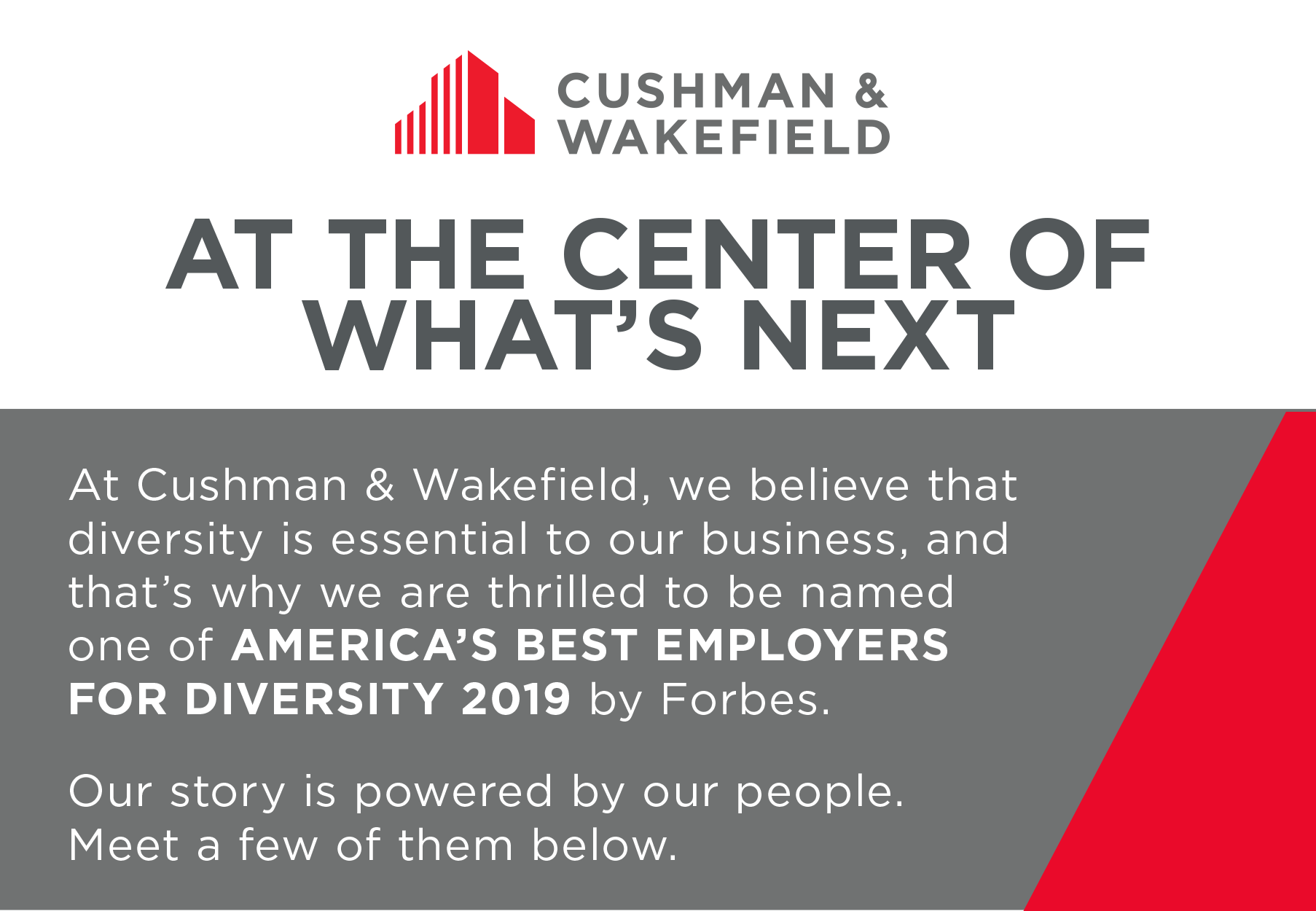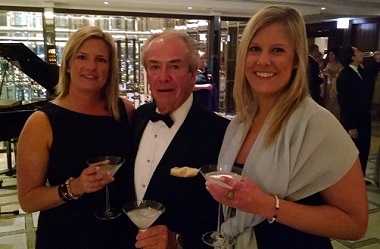| Fred Beaubien, who began his career 47 years ago in 1970 as one of Cushman & Wakefield’s first Chicago employees, played an instrumental role in establishing the Cushman & Wakefield brand in the city. He was the top producer in the Chicago office for 10 years and clinched the honor on a regional level four times.
In 1986, Fred was voted Commercial Broker of the Year by the Chicago Sun Times and nominated for the award in 1989, 1990, and 1996. In 1996, Fred and his team won the NAIOP Deal of the Year for the Blue Cross built-to-suit headquarters and the NAIOP Industrial Deal of the Year for the Kraft 800,000-square foot (sf) build-to-suite distribution center. Active in the community and industry, Fred served as President and on the board of the Chicago Office Leasing Brokers Association. In 1996, Fred moved to San Jose, where he applied his expertise and creative thinking to help clients grow in Silicon Valley, which was then a maturing market, and quickly became one of the top producers in Northern California. He participated in Joint Venture Silicon Valley and was a board member of the Association of Silicon Valley Brokers. In 2012, The Association of Silicon Valley Brokers awarded Fred the Michael Murphy award for his career achievements and contributions to the community. Over the years, Fred has represented user groups across asset classes. He’s known as an innovative thinker, who can be counted on to come up with creative strategies to solve complex client challenges. Fred’s transaction experience spans leases, leases with equity participation, build-to-suits for lease or purchase, and major asset dispositions. In 2013, Fred relocated to Cushman & Wakefield’s Phoenix office, where he works today. Below, Fred sheds light on his long service with Cushman & Wakefield and views about the commercial real estate industry. |
| What are the biggest changes you’ve seen to the way business is done over the decades? |
| Other than the obvious — technology and the ability to get information — the sophistication of the users and real estate executives has changed a great deal. They are more highly educated and their role is more respected by the C Suite. They are more involved with the company strategy. |
| You are now working in your third market: Chicago, then San Jose, and now Phoenix. What motivated the relocations? |
| I had been in Chicago for 26 years and was given the opportunity to be Area Leader in San Jose/Silicon Valley in 1996. It was an exciting time in the tech world, a new challenge, and new life experience.
The move to Phoenix in 2013 was brought about mainly because I was tired of listening to myself complain about California! I am still doing business there and am now teamed with Don Rodie, with help from the Arizona Commerce Authority, in pursuing California companies to establish a presence in Phoenix. |
| Describe some high points in your career. |
| I have been very fortunate to have had my share of ‘career deals.’ Chicago included the ATT Corporate Center, 1.4 million square feet (msf) build-to-suit; the US Gypsum Corporate HQ, 800,000 sf build-to-suit; and the BlueCross/Blue Shield HQ one-msf build-to-suit. In San Jose, I represented the County of Santa Clara in the acquisition of a 250,000-square-foot complex to consolidate offices and, later, I led the acquisition of seven city blocks covering 13 acres in downtown San Jose for a medical/government center.
Each of these deals and many others required a creative solution, which was challenging and rewarding to tackle. I am also grateful for the opportunities I have had over the years to work in management and serve on committees, which have influenced the structure, growth, and culture of Cushman & Wakefield. Arthur Mirante, our former CEO, asked me to serve on a number of committees. In the late 1980s, because I had two of our first corporate service accounts — Kraft Foods and General Motors — Arthur asked me to form a committee and recommend a strategy and structure for our firm’s pursuit and service of that business. We presented a plan to the Board of Directors that was adopted and proved successful for a number of years. |
| If you had to describe yourself in 3 words, what would they be, and why? |
| Tenacious, resilient, and grateful for my family, friends, career, and all of my life experiences — so far. |
| If you could have dinner with any one person, living or dead, who would he/she be, and why? |
| Willie Nelson, just for the hell of it. |
| What have you liked most about working for Cushman & Wakefield? |
| I have been fortunate to have always found the support I needed, both geographically and from other service lines, and from research and analytics. I have developed long-term friendships over the years with many of my colleagues. |
| What are some of the secrets to your success? |
| I think one of the best compliments I have been paid by clients is that I am a ‘good thinker.’ I try to approach an assignment from a consultative perspective. From there, I formulate a strategy and establish a criteria by which alternative solutions can be measured. |
| What’s one or two things that many of your colleagues would not know about you? |
| I love fly fishing in both fresh water and salt water. You are always in beautiful places and if you are properly focused on the skills involved, it clears your mind of all your concerns.
Travel: It broadens your view. A recent trip to Cuba was most enlightening. Road biking: I have done a number of charity rides. The best experience was a Tour de France organized ‘shadow ride’ for the first nine stages. Retired pros lead us to a point on the course each day and we would ride the last 60 or 80 miles in front of the Peloton and watch the finish. |
How do you see property strategies changing to meet future changes? |
| Now, more than ever, a developer planning a new project must give careful consideration to understanding ‘the target market.’ Many corporations want larger floor plates, higher ceilings, more parking, and more power, but a building with such attributes may not lease well to law firms and other professional groups. | What advice do you offer young people getting into the business today? |
|
|


